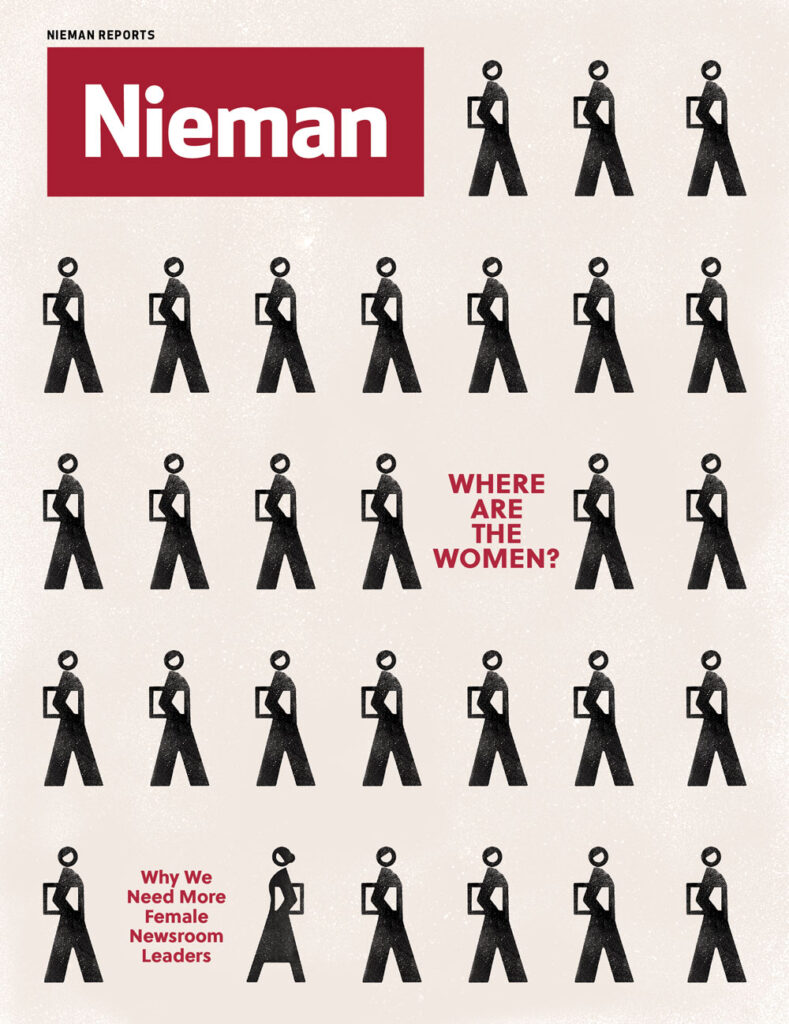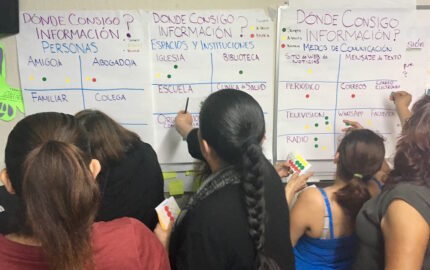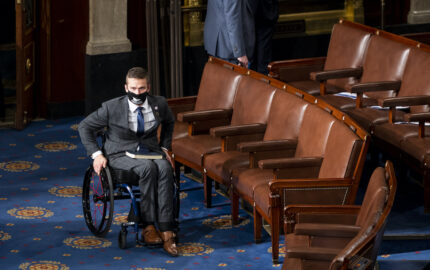Melissa Bailey
Managing editor, New Haven Independent, 2015 Nieman Fellow

At times I've felt I had to put on a more masculine, no-nonsense demeanor so that men in power take me seriously. But in general, I have found that taking a quiet, soft-spoken approach can be a great advantage: People I'm interviewing are more willing to open up, and when they try to push me around, I can always pull out the video camera. The most importance advice I have for women who want to lead in journalism is to work for an organization in which you can pursue whatever you’re passionate about—an organization that is not held back by conventional notions of how journalism is supposed to be done. If that organization doesn't exist, create it. And don't be too modest to claim credit for your own accomplishments and promote your own work.
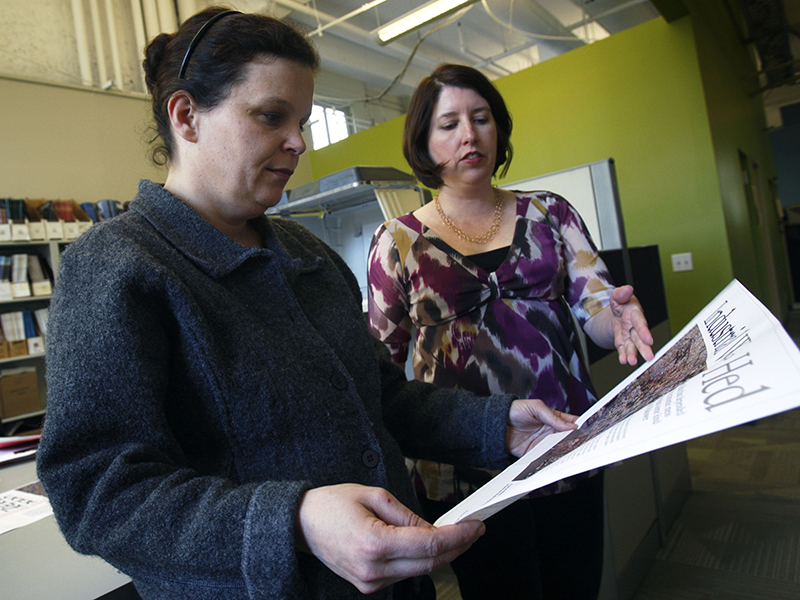
Monika Bauerlein
Co-editor in chief, Mother Jones
I did consider leaving journalism, more than once. These days it's down to a couple of times a week… I was tempted by other professions, angered by harassment or discrimination, neither of them subtle, and at some points I also despaired of being able to climb out of debt and/or raise my children on a journalist's salary, especially in the Bay Area. I stayed because, corny as it is, I love this profession. I love being excited about what I do, the people I do it with, the way it plays out in the world, and I love ending every day having learned something new.
Clara Jeffery
Co-editor in chief, Mother Jones
Journalism is no different than any other profession in that it’s hard for women and hard for working moms to thread the needle of being there for their family and finding the support in their job to do that. Structural things like no institutional daycare, et cetera. Those things bedevil our industry as much as any other. At Mother Jones, we don’t have on-site daycare. But we do offer very generous family leave and we have a lot of tolerance and structures in place that help parents take leave if they need it. They can work from home and they can do all kinds of things. We’re better than most. I think everybody could be doing better, and some of that in my estimation would need a more societal, governmental overhaul. My advice to women who want to lead in journalism is to first find the specific subset of what you love to do and that makes you thrive and happy, and find a place where you are supported by your employers. It doesn’t just have to be women mentoring other women at all, but you need to find a place where it’s a good atmosphere. Part of that is that women are treated fairly and encouraged to take leadership roles, encouraged to speak up. Not pushed to the sidelines. And encouraged to try different things. I think another thing that happens in our industry is that women are pigeonholed into writing and editing family-focused stuff or memoir-focused stuff. That’s all great, but it shouldn’t be that they’re pigeonholed and that’s what they should be doing. I think it’s also if you’re in a news organization that you’re not just writing about family issues or women’s issues, that you get to dabble, and figure out what you want to do. Maybe that’s being a foreign correspondent and maybe it’s working on the political desk. But that opportunity is there for you. I never had a female boss. I certainly work with great women who are peers, and I would say at Mother Jones with Monika [Bauerlein] and I working as co-editors, we sort of joke, it’s a fabulous way to mentor each other. When Monika and I got this job we would joke that we were the only female editors of “thought leader” magazines, which is this silly category, that had really ever, except, Tina Brown twice and Deirdre English who had been the editor of Mother Jones before. There were just not that many women leaders of thought leader magazines. The whole landscape has changed and one of those changes is that there are a lot more women running news organizations of all different kinds. It’s really encouraging, just what I’ve seen in the past 10 years. I’m not even sure what the stereotype has been, but there are women news organization leaders out there, who are very super hierarchical and rule with an iron fist, and there are some who do things differently, just as there are for men. But at least, I think we’re starting to see enough women out there so that there’s not just one model, or it’s not such a rarity to encounter that, that you think every other female boss is going to be just like the one you happened to have.
Whitney Johnson
Co-founder with Clayton Christensen of Rose Park Advisors investment firm, Harvard Business Review blogger
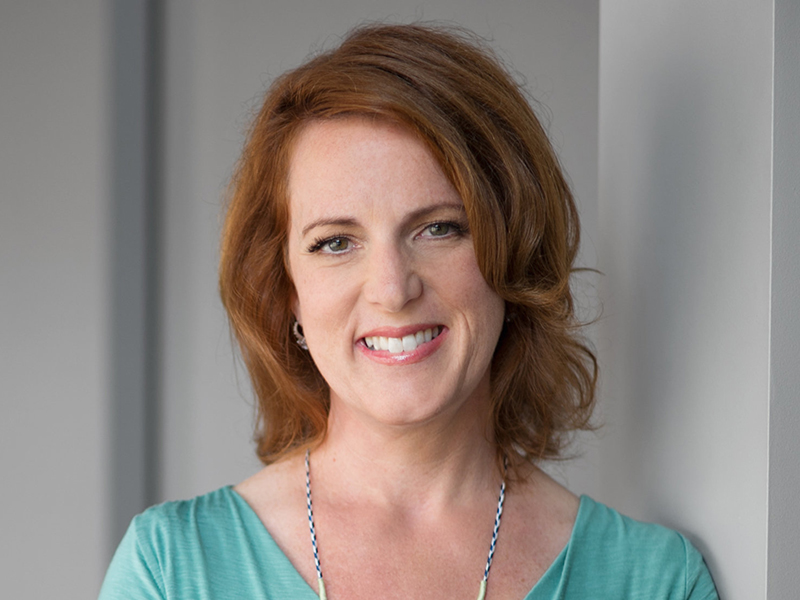
Why have women had such little success in turning their names into brands people want to fund? It’s not just journalism, it’s happening in other fields. There was a study out of Harvard and Wharton earlier this year that said that investors, whether male or female—so it’s not just men—prefer pitches made from male entrepreneurs over those from female entrepreneurs, even when the pitches are identical.Then there’s also the study that was done in the legal profession that women have to be two and a half times more competent to be judged on equal footing with men. So what we know is that we just trust men’s opinions and voices more readily than we do women when it comes to being an expert. Now the question is why is that the case? I see this as being an archetype at play. I’m very focused on Jungian psychology and you’ve got this archetype of men as the swashbuckler and women as the nurturer and if you look at the masculine traits, they’re wielding power and controlling situations, and women are only feminine when they’re helping others and relating to others and nurturing. We’ve got this archetype that is deeply seated that is very difficult for us to shake. Compare Katie Couric to I think it was Peter Jennings or Dan Rather. You saw Katie Couric in the morning, we loved her in the morning because it was relational and nurturing and then when she was on the evening news she actually looked forlorn. She really did look forlorn because she was going against the archetype. Oprah has made a name for herself, not by being the expert, which we typically think of male journalists doing, but by being relational and nurturing. How can men become better allies and advocates in the workplace? Giving everyone a seat at the table is the right thing to do but I think the reality is that it’s not going to happen until a man has had a wife or a daughter or a sister who has experienced the pain of not being heard. I just don’t think it’s going to happen. No one cedes power just because. They just don’t. We don’t. Especially because most men would argue that they don’t see themselves as having male privilege in the first place. I think it is changing gradually, but it still is going to take awhile. The other piece is that men who have had an experience of being an outsider—whether it’s a man who’s been an immigrant and knows what it’s like to be an outsider—they’re more likely to include women. There’s empirical evidence that having men and women on the same team raises the team’s collective intelligence and its ability to solve complex problems. That’s going to kick in. But’s it’s still going to be gradual. Going back to disruptive innovation, men in a newsroom are the incumbents and incumbents just don’t change. I mean, why should they? It’s too painful, it’s too difficult. Because even though there’s that impulse to change and even with an organization like an Apple where they knew they needed to disrupt themselves, when they cannibalized themselves it was still themselves. In this particular situation, for a man to say, OK, I want to have this woman speak up, he’s cannibalizing himself, but there’s no actual benefit to him as an individual. So it’ll take awhile. If you go back to our disruptive innovation theme, you can’t storm the citadel, you don’t make progress. The way you make progress is you go out on the fringes where no one else is playing and you disrupt. That’s what Oprah did, that’s what you have even seen something like Pinterest do. Now, it’s not owned by women, but it’s been built by women. Oprah did the same thing. She just said: You know I’m going to take my relational, nurturing, my connectivity approach and I’m going to go out and she built an empire. Where the real change is going to come is in new entities.
Marcy McGinnis
Senior vice president, newsgathering, Al Jazeera America
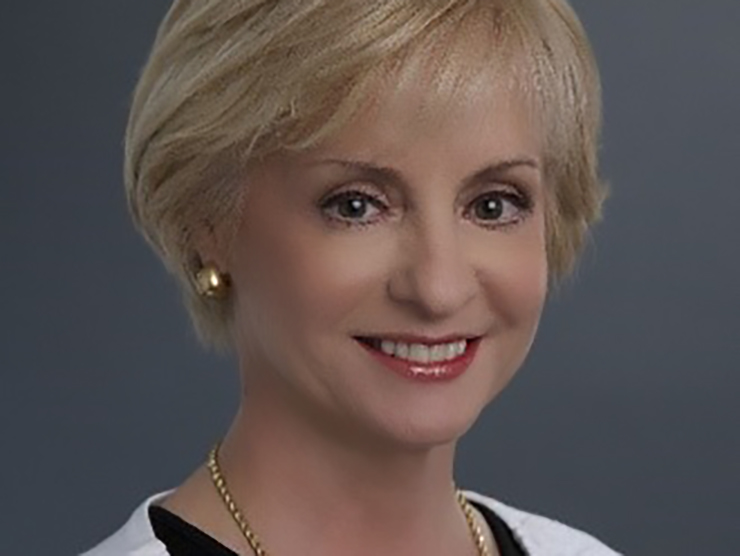
The reason why I feel very strongly about women in positions of authority is because the people in authority are the people who can effect change in an organization. For example, when I was at CBS many, many, many years ago, there were a lot of women working on the morning broadcast who were in their 30s. A lot of them were newly married and having children.A group of them came to me and said, “Is there any way that we might be able to do a job share? If we could do a job share. I would work three days a week. This person would work two days a week.” It was a way that they would be able to keep their jobs and we would still have the benefit of their experience.The funny thing was they would end up going off staff because they’d end up working part time. To the company’s benefit, it would be, “Oh, wow. We don’t have to be paying benefits but we’d still have these experienced people working these days.” I took it to the senior group and one of the first reactions, I’ll never forget, it was a man who said, “Why would we do that? We’ve never done it before.” Without me in the room to explain why it’s a good idea, then everybody in the room would have said, “Yeah, why would we do that? We haven’t done that before. That’s stupid. Why would we do it?” You would do it because these people are very good at their jobs. They’re very dedicated. They’re going to work just as hard on their two days and three days. They’re going to work in concert and it’s going to get done. “Why not?” is my question. “Why not?” rather than “why?” By the way, the policy did get instituted for the job share. I truly believe that it would not have been instituted had women not been in that room making those decisions.
Emily Ramshaw
Editor, The Texas Tribune
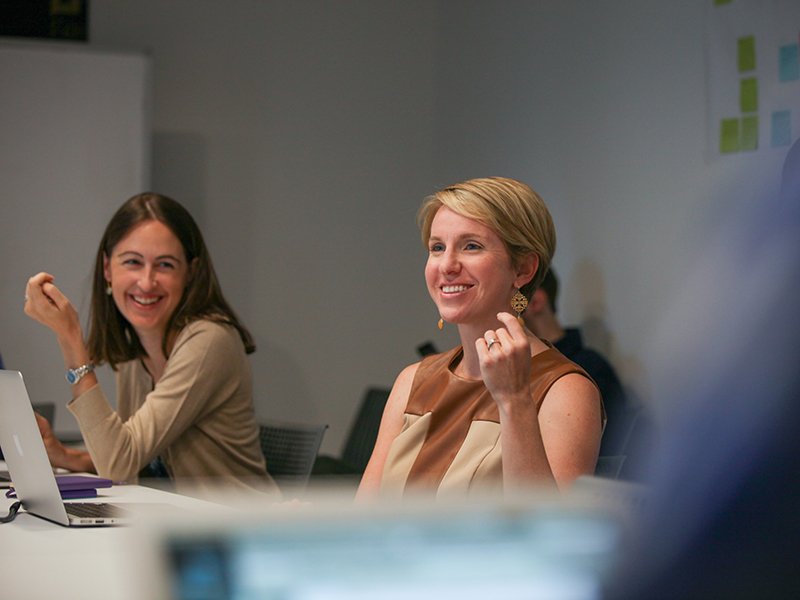
Don’t wait for someone to hand you a leadership opportunity; make one for yourself. The women I know with leadership roles in their newsrooms by and large staked their claim to them. They saw holes, didn’t wait for permission to fill them, and quickly became instrumental to their operations. Don’t be afraid to seek out nontraditional journalism models. Start-up digital news organizations pride themselves on breaking the mold on everything from storytelling to the business model. They’re creating their own cultures from the ground up, not inheriting it. That inherently creates opportunities for women at the top. When my friend and colleague Brandi Grissom came on board at The Texas Tribune in 2009, she was a criminal justice reporter with legislative reporting roots at the AP and the El Paso Times. First, she saw holes in our investigative reporting, and aggressively pursued major deep-dive reporting projects around the death penalty and mental health that put the Trib on the map. Then she saw a leadership and project management gap. She became a student of best practices, interviewing investigative editors across the country and visiting them in their newsrooms. Back at the Trib, she started working with other reporters to inject watchdog journalism into their arsenals. Within short order, she'd become our projects editor, overseeing major investigative endeavors and staff-wide initiatives that involved up to a dozen reporters, developers, and artists. Unfortunately for us, Brandi's leadership initiative wasn't just noticed in-house. She was just named enterprise editor of the Los Angeles Times.
